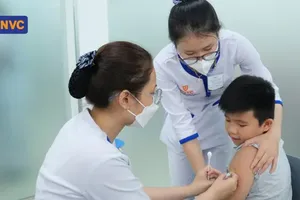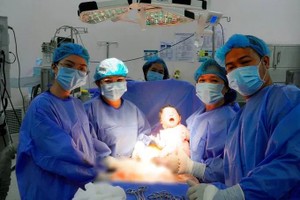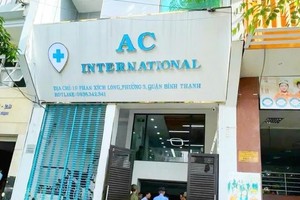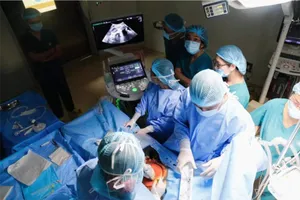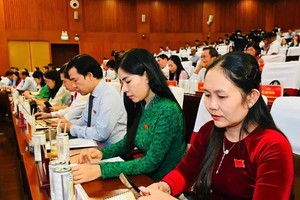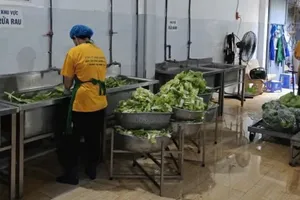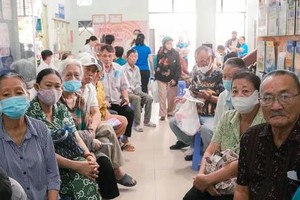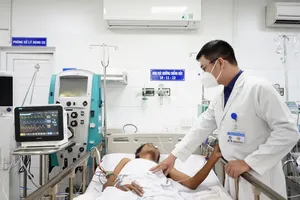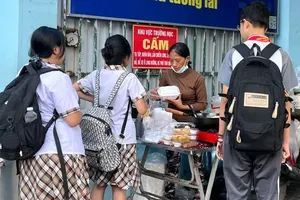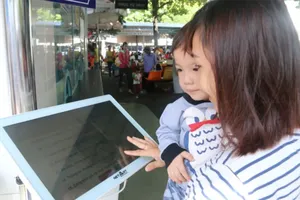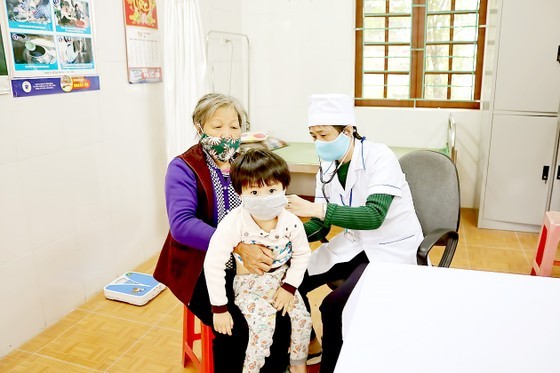 |
Illustrative image |
Vaccine supply disruption
Ms. Hoang Ngoc Mai, Deputy Head of the National Expanded Program on Immunization (EPI) Office, reported that in 2022, the national and regional EPI programs successfully distributed approximately 20 million vaccine doses to provinces and cities. Thanks to the reserve stockpiles established in 2021, the EPI program was able to ensure sufficient vaccine supply during the early months of 2022.
However, by mid-2022, there were delays in the timely delivery of vaccines, resulting in a shortage of certain vaccines nationwide, including measles, DPT (Diphtheria, Pertussis, Tetanus), measles-rubella (MR), and oral polio (bOPV) vaccines used for poliomyelitis prevention.
To address this situation, the Institute of Vaccines and Medical Biologicals (IVAC), along with the Center for Research and Production of Vaccines and Biologicals (POLYVAC), provided support to the EPI program by supplying 328,280 doses of DPT vaccine and 200,000 doses of measles vaccine, effectively meeting the demand for approximately one month.
According to Ms. Hoang Ngoc Mai, the vaccination coverage rate within the EPI program did not meet the annual targets in 2022 and was lower compared to 2021. In the Southern region, 14 provinces had vaccination rates below 80 percent, including Dong Nai, Tien Giang, Lam Dong, Tay Ninh, Can Tho, Soc Trang, An Giang, Tra Vinh, Dong Thap, Binh Phuoc, Kien Giang, Ca Mau, Bac Lieu, and Hau Giang.
The Southern region also had a low rate of booster vaccinations, with only 16 out of 20 provinces implementing them in 2021, totaling 338,026 doses, and in 2022, the number increased to 18 provinces, with 123,498 doses administered in the first quarter of 2023.
In light of this situation, Ms. Duong Thi Hong, Deputy Director of the National Institute of Hygiene and Epidemiology under the Ministry of Health cum Head of the National EPI Office, said that by the end of March 2023, the unit conducted surveillance in several localities and discovered that most provinces had depleted their stock of the 5-in-1 DPT-VGB-HiB.
Some other vaccines were also in limited supply, with enough doses to last until July, such as the DPT, BCG, VAT, and MR. The supply of polio vaccine was projected to be sufficient until August. The EPI program promptly sent urgent dispatches to provinces and cities, urging them to secure vaccine supplies for the program and compile a report for the Ministry of Health.
Ms. Duong Thi Hong also mentioned that the Ministry of Health would establish pricing frameworks for the imported 5-in-1 vaccine, and localities would make procurement, bidding, and price negotiation decisions based on their specific needs.
A long-term plan needed
According to Mr. Nguyen Dang Hien, Director of POLYVAC, the company currently engages in the production and supply of four types of vaccines, including three vaccines within the EPI program: oral polio (bOPV), measles, and measles-rubella (MR) vaccines.
Recently, the company received a document from the Ministry of Health regarding the pricing plan. Once the pricing plan is approved, the national EPI program will establish a comprehensive procurement contract, and provinces will place specific orders with the manufacturer based on this contract. However, to carry out this process effectively, the company requires accurate information on the quantity to determine vaccine prices and make accurate projections for the required production materials.
Mr. Nguyen Dang Hien mentioned that the vaccines the company currently produces and supplies for the EPI program are long-term and have been regularly used since the program's inception. In previous years, there were no issues with vaccine shortages as the company would typically produce reserves for the future. However, changes from the Ministry of Health in the past two years have resulted in disruptions in vaccine supply.
"At present, it is not feasible to demand immediate vaccine availability from us because we need to prepare raw materials and plan accordingly. Even the procurement of raw materials requires accurate long-term planning and budgeting," stated Mr. Hien.
Mr. Tran Thanh Hieu, Deputy Director of the Company for Vaccine and Biological Production No.1 (VABIOTECH), expressed his desire for the government, the Ministry of Health, and the EPI program to be proactive in placing orders. It would enable the company to supply vaccines in the EPI timely.
"We are currently capable of meeting the demand within the year, but it depends on whether the ministry and provinces have early procurement plans. We hope that the Ministry of Health and the project will place their orders early so that we can plan for production accordingly," Mr. Tran Thanh Hieu shared.
